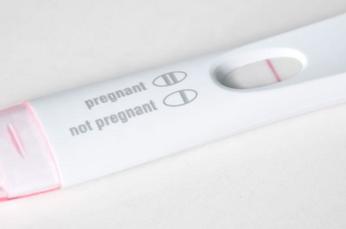Back to General Health
Lack of vitamin D lowering fertility in Gulf, doctors say

06/2016
Anam Rizvi
ABU DHABI // Vitamin D deficiency, consanguinity and obesity are major reasons that the Gulf’s rate of infertility is higher than that of the West, doctors say.
“Today, infertility is globally acknowledged to be a major health problem," said Dr Human Fatemi, medical director of IVI Middle East Fertility Clinic in Abu Dhabi.
“It is estimated that infertility affects 15 per cent of the global population of reproductive age, but this percentage is even higher in the Gulf."
Dr Fatemi’s clinic collaborated with Aristotle University of Thessaloniki in Greece on a study of fertility in the Arabian Gulf, which was published in the international journal Fertility and Sterility.
The study calls for strategies to educate couples about how vitamin D, obesity and marriage between first cousins affect fertility. It also suggests guidelines to effectively manage the problems.
It said that in developing countries where access to infertility treatment is more difficult, childless women suffer discrimination, social stigma and ostracism.
Data from the UN has shown that average birth rates have dropped from 5.23 children for each woman in 1980 through 1985, to 1.97 in the 2005–2010. period. The UN projected that this was expected to drop to 1.62 by 2025 through 2030.
“Previously, no one did any research to find out the cause of infertility here," said Dr Fatemi, lead author of the study. “We are understanding better and better that parental consanguinity and lack of vitamin D play a role."
Lifestyle changes are also partly to blame for lowered fertility rates, he said.
“The lifestyle has changed completely in this part of the world in the past 30 to 40 years. Fifty years ago, there was no air conditioning and now people are inside all the time," said Dr Fatemi.
“You never go outside. Vitamin D prevents a lot of diseases, including cancers, and it activates the egg."
The study states: “The widespread distribution of the vitamin D receptor in reproductive tissues, including ovaries, endometrium, and placenta in humans and animals, suggests a role for the vitamin in female fertility."
There were also hormone abnormalities and ovulation dysfunction associated with obesity, the study states.
“If one’s body mass index is higher than 29, the receptivity of the uterus declines. The chromosomal formation of eggs also decline," said Dr Fatemi.
Dr Limia Ibrahim, a specialist in obstetrics, gynaecology, reproductive endocrinology and fertility at Abu Dhabi’s Burjeel Hospital, agreed that changes in lifestyle played a role in infertility in the Arabian Gulf.
“There are environmental factors," Dr Ibrahim said. “Food habits have changed. People are marrying late and conceiving late. Fertility is affected by all of these factors."
She suggested that people maintained healthy diets and exercise, and ensured they had enough vitamin D and sun exposure.
Dr Monika Chawla, an in-vitro fertilisation specialist, gynaecologist and obstetrician at Fakih IVF centre in Abu Dhabi, said there was a link between vitamin D and egg reserve and to egg quality.
“We do vitamin D tests routinely and work to correct it," Dr Chawla said. “The patient’s response to treatment, their success rates, their egg quality, their egg reserve definitely see an improvement."
http://www.thenational.ae/uae/health/lack-of-vitamin-d-lowering-fertility-in-gulf-doctors-say
